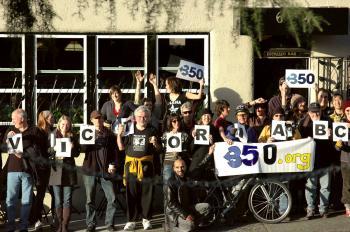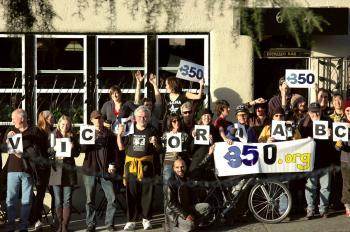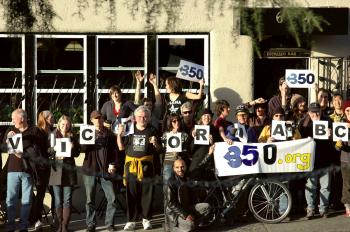Vancouver Coffee Shop Gears up for Mob Scene
Carrotmobbers will spend up big at Salt Spring Island Coffee in Vancouver in exchange for environmental upgrades.

CARROTMOB: Mobbers are entertained by the Nice Guy Trio as they line up to shop at K & D Market in San Francisco during the first ever Carrotmob in March 2008. Courtesy of Eli Gardner
|Updated:
Reporting on the business of food, food tech, and Silicon Alley, I studied the Humanities as an undergraduate, and obtained a Master of Arts in business journalism from Columbia University. I love covering the people, and the passion, that animates innovation in America. Email me at andrea dot hayley at epochtimes.com
Author’s Selected Articles








